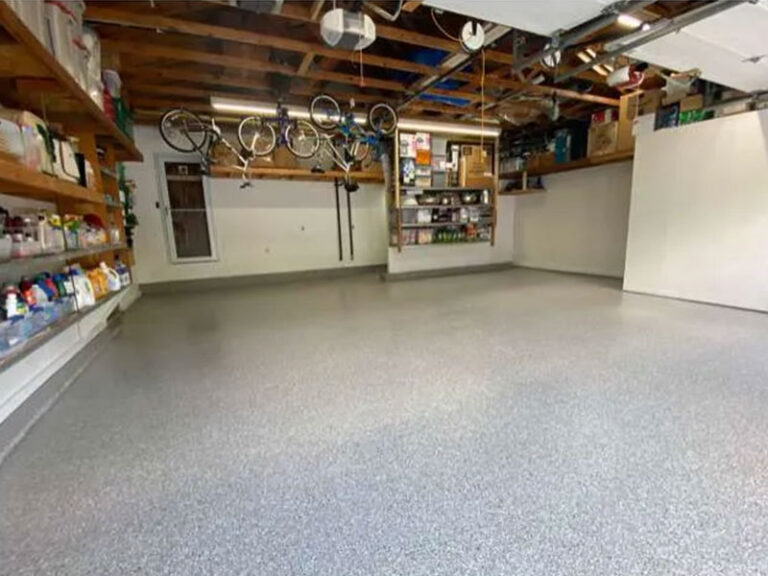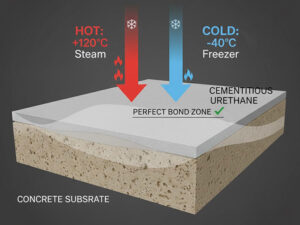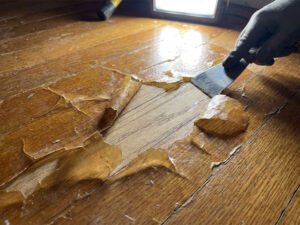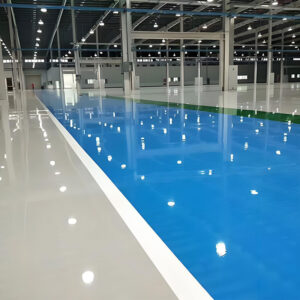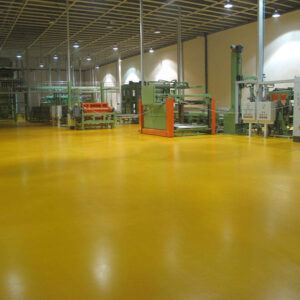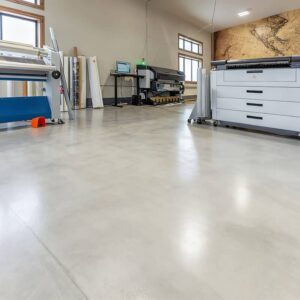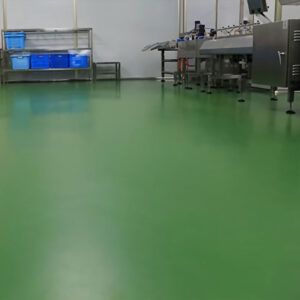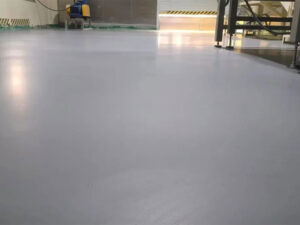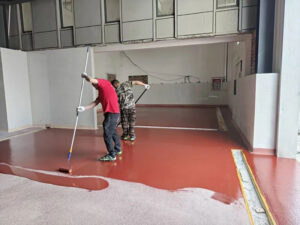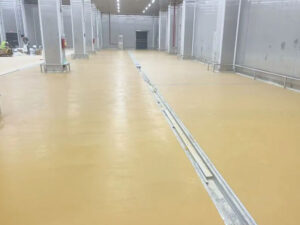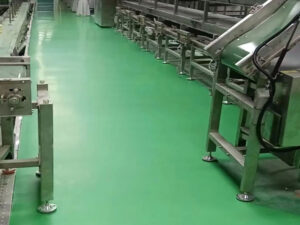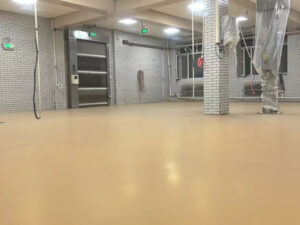1. Introduction: Choosing the Right Garage Flooring
Your garage floor takes a beating—from oil spills to heavy equipment. The right flooring protects against cracks, stains, and wear while enhancing aesthetics and home value.
Popular garage flooring options include:
- Epoxy – High-gloss, ultra-durable
- Polyurethane – Flexible, temperature-resistant
- Polyurea – Fast-curing, industrial-grade
- Tiles – DIY-friendly, modular
This guide compares garage floor paint vs epoxy and other top materials, helping you pick the best solution for durability, cost, and ease of installation.
2. Garage Floor Paint vs Epoxy: Key Differences
Many homeowners debate between garage floor paint and epoxy coating. Here’s how they stack up:
Cost Comparison
| Option | Cost per Sq Ft | Lifespan |
|---|---|---|
| Floor Paint | $0.50 – $2 | 1-3 years |
| Epoxy | $3 – $12 | 10+ years |
✅ Paint is cheaper upfront but requires frequent recoating.
✅ Epoxy costs more initially but lasts decades.
Durability & Performance
| Feature | Floor Paint | Epoxy Coating |
|---|---|---|
| Chemical Resistance | Poor (stains easily) | Excellent (oil, acid-proof) |
| Impact Resistance | Low (peels under weight) | High (handles heavy tools) |
| Slip Resistance | Moderate (add grit needed) | Customizable (textured options) |
💡 Best for Heavy Use: Epoxy wins for garages with cars, workshops, or machinery.
Installation Difficulty
- Paint: Easy DIY—clean, prime, and roll on. Needs 2-3 coats.
- Epoxy:
- Requires thorough cleaning, etching, and precise mixing.
- Sensitive to humidity/temperature (ideal: 50°F–90°F).
- Professional installation recommended for best results.
⚠️ Common Mistake: Applying epoxy over dirty or damp concrete causes peeling.
3. Epoxy Flooring: Pros, Cons & Best Uses
✔️ Advantages
- High-gloss finish – Custom colors, metallic effects, flakes.
- Extreme durability – Resists cracks, chemicals, and abrasions.
- Easy maintenance – Wipes clean; no sealer needed.
✖️ Disadvantages
- Yellowing under UV – Requires UV-resistant topcoat for sunlight exposure.
- Long curing time – 24–72 hours before use.
- Not DIY-friendly – Mistakes lead to bubbling or uneven coating.
🏆 Best For:
- Home garages (daily parking/workshops).
- Commercial garages and warehouses.

4. Polyurethane Flooring: When to Choose It?
Polyurethane is more flexible than epoxy, making it ideal for climates with extreme temperature swings.
✔️ Advantages
- UV-stable – Won’t yellow in sunlight.
- Thermal shock-resistant – Handles -40°F to 200°F.
- Smoother texture – Less slippery than epoxy.
✖️ Disadvantages
- Limited design options – Usually solid colors.
- Higher cost – $5–$15/sq ft.
🏆 Best For:
- Garages with direct sunlight.
- Regions with freezing winters or hot summers.

Epoxy vs Polyurethane Flooring
5. Polyurea Flooring: The Premium Option
Polyurea is the toughest garage coating but requires professional installation.
✔️ Advantages
- Cures in 1 hour – Walkable same day.
- Extreme durability – Resists chemicals, impacts, and extreme temps (-40°F to 300°F).
- Seamless finish – No cracks for moisture to seep in.
✖️ Disadvantages
- Expensive – $7–$20/sq ft.
- No DIY option – Must hire a pro.
🏆 Best For:
- High-end residential garages.
- Industrial facilities (auto shops, factories).

Polyurea vs Epoxy Garage Floor
6. Garage Floor Tiles: DIY-Friendly Alternative
Interlocking tiles (PVC or rubber) are great for quick, no-mess installations.
✔️ Advantages
- No curing time – Use immediately.
- Replaceable sections – Fix damage without redoing the whole floor.
- Comfortable underfoot – Softer than epoxy.
✖️ Disadvantages
- Seams trap dirt – Grime collects between tiles.
- Weight limits – Not ideal for heavy trucks.
🏆 Best For:
- Rental properties (easy removal).
- Temporary or budget-friendly solutions.

7. Comparison Chart: Which Flooring Is Best?
| Option | Cost per Sq Ft | Durability | DIY Difficulty | Lifespan |
|---|---|---|---|---|
| Floor Paint | $0.50–$2 | Low | Easy | 1–3 years |
| Epoxy | $3–$12 | High | Moderate | 10+ years |
| Polyurethane | $5–$15 | Medium-High | Hard | 15+ years |
| Polyurea | $7–$20 | Extreme | Pro Only | 20+ years |
| Tiles | $2–$10 | Medium | Easy | 5–10 years |
8. Installation Tips for Each Option
Epoxy Floors
- Clean thoroughly – Degrease & etch concrete.
- Control humidity – Below 65% for proper curing.
- Use a primer – Ensures better adhesion.
Garage Tiles
- Level the floor – Prevents uneven locking.
- Choose interlocking tiles – Reduces shifting.
Floor Paint
- Sand the surface – Improves paint grip.
- Add anti-slip grit – For safer walking.
9. FAQs: Garage Floor Paint vs Epoxy & More
Q: Can I apply epoxy over old floor paint?
❌ No! Remove all paint first—epoxy won’t stick otherwise.
Q: Which is better for cold climates—epoxy or polyurethane?
✅ Polyurethane – Handles freeze-thaw cycles better.
Q: Do garage tiles support car weight?
⚠️ Some do, but heavy vehicles may deform cheaper tiles.
10. Conclusion: What’s the Best Garage Flooring?
- Budget pick → Floor paint (short-term) or epoxy (long-term).
- Heavy-duty use → Polyurea or polyurethane.
- Easy DIY → Tiles or paint.
- Extreme weather → Polyurethane.
For a durable, low-maintenance garage floor, epoxy is the top choice. If you need a quick, DIY-friendly fix, consider tiles. Still unsure? Consult a flooring specialist for personalized advice!
Other Related Vs: Polished Concrete Floors vs Epoxy, Epoxy vs Polyaspartic Coatings
